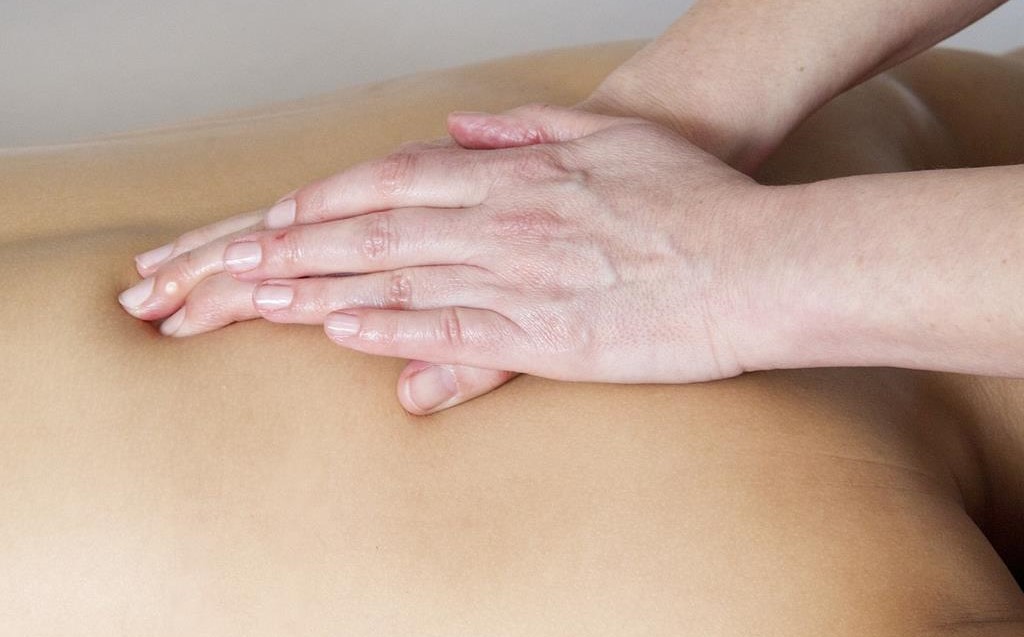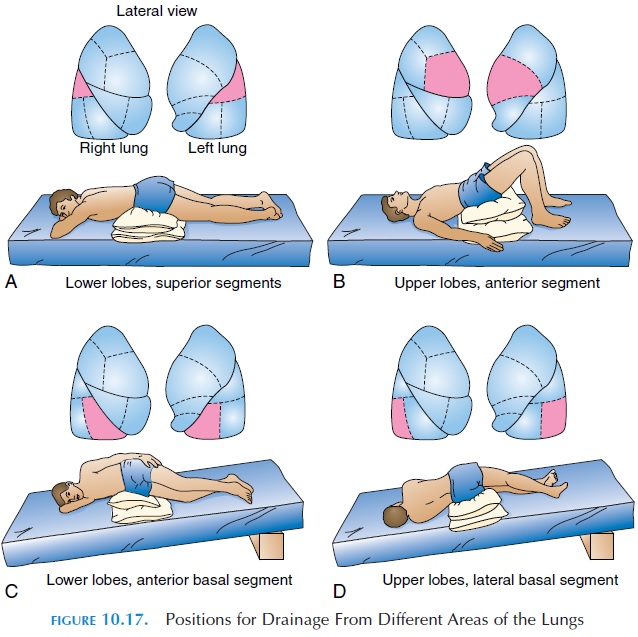Thai massage is not meant to be painful. While you may experience some discomfort, it should not be unbearable.
Thai massage is a traditional therapeutic practice that focuses on stretching and deep tissue work to improve the flow of energy in the body. It is often described as a combination of yoga and acupressure. The goal of Thai massage is to release tension and promote overall wellness.
It involves applying pressure to specific points, as well as using stretching techniques to improve flexibility and reduce muscle stiffness. Many people find Thai massage to be relaxing and rejuvenating, but it’s important to communicate with your therapist about your comfort level to ensure a positive experience. The practice of Thai massage has gained popularity worldwide for its holistic approach to healing and relaxation. This ancient healing art has been passed down through generations and continues to be an integral part of Thai culture.
In recent years, Thai massage has become increasingly popular in Western countries, where it is sought after for its therapeutic benefits and stress-relieving properties. As more people seek out alternative and natural methods of healing, the demand for Thai massage continues to grow. Whether you’re interested in addressing specific physical ailments or simply want to experience deep relaxation, Thai massage offers a unique and effective approach to improving overall well-being.
The History Of Thai Massage
Thai massage, also known as Nuad Boran, is a traditional healing system that dates back thousands of years and has deep roots in Thai culture. Understanding the history of Thai massage provides valuable insights into the techniques and philosophies that underpin this ancient practice.
Origins Of Thai Massage
The roots of Thai massage can be traced back to ancient Indian Ayurvedic practices and traditional Chinese medicine. The technique evolved over time, incorporating elements from various cultures and medical traditions to become the unique system we know today.
Traditional Techniques
Thai massage is based on the concept of energy lines, or sen, which are similar to the meridians in traditional Chinese medicine. The practice also involves acupressure, yoga-like stretching, and passive joint mobilization to restore balance and harmony to the body.
“` For SEO purposes, the content should include relevant keywords such as “Thai massage,” “Nuad Boran,” “traditional healing system,” “Ayurvedic practices,” “energy lines,” “acupressure,” and “yoga-like stretching.” These keywords help to optimize the content for search engines.

Credit: www.self.com
Understanding Thai Massage Principles
Thai massage focuses on balancing energy flow through gentle pressure and stretching techniques. While some discomfort may arise, it should not be overly painful. Authentic Thai massage is designed to promote relaxation, flexibility, and well-being without causing excessive discomfort.
Thai massage, also known as Thai yoga massage, is a traditional healing system that dates back over 2,500 years. Based on the principles of Ayurveda, yoga, and traditional Chinese medicine, Thai massage focuses on restoring energy balance and promoting overall well-being through a combination of acupressure, passive stretching, and mindfulness techniques. To truly understand the essence of Thai massage, let’s delve into its core principles and how they shape the entire experience. Energy Lines (Sen) In Thai massage, the concept of energy lines, or “sen,” plays a fundamental role.
Sen are invisible energy pathways that permeate the body, similar to the concept of meridians in traditional Chinese medicine. These energy lines are believed to be conduits for the flow of vital life force, known as “prana” in Ayurvedic tradition. By applying pressure to specific points along these energy lines, a skilled Thai massage therapist aims to release blockages and restore the natural flow of energy throughout the body.
Yoga Influence Another defining aspect of Thai massage is its close association with yoga. The practice of incorporating yoga-like stretches into the massage session distinguishes Thai massage from other forms of bodywork. Through gentle manipulation and passive stretching, the recipient is guided into various yoga postures, enhancing flexibility, relieving muscle tension, and improving overall circulation.
This unique blend of yoga and massage creates a holistic experience that not only addresses physical tension but also enhances mental and emotional well-being. Incorporating the principles of energy lines and the influence of yoga, Thai massage seeks to harmonize the mind, body, and spirit, offering a deeply rejuvenating and transformative experience. Understanding these foundational principles can provide insight into the potential benefits and therapeutic effects of Thai massage.
The Pain Vs. Pleasure Debate
The Pain vs. Pleasure Debate: Thai massage is a unique blend of therapeutic techniques that combine elements of acupressure, stretching, and assisted yoga poses. While some may find the pressure applied during a Thai massage uncomfortable, others experience it as intensely pleasurable.
The Role Of Pressure Points
Thai massage focuses on targeting specific pressure points to release tension, improve circulation, and promote overall well-being.
Easing Muscle Tension
By applying gentle pressure and stretching techniques, Thai massage helps ease muscle tension and promote relaxation.
Benefits Beyond The Physical
Thai massage, also known as Nuad Thai or Thai yoga massage, is renowned for its ability to alleviate physical issues and promote relaxation. However, the benefits of this ancient healing practice extend far beyond the physical realm. Thai massage is known to provide mental relaxation and spiritual alignment, offering a holistic approach to well-being.
Mental Relaxation
Thai massage has a profound effect on the mind, allowing for deep mental relaxation. As the therapist applies gentle pressure and stretches the body, it prompts the release of endorphins, which are often referred to as the “feel-good” hormones. These endorphins create a sense of calm and tranquility, leaving you feeling mentally refreshed and rejuvenated.
The rhythmic movements and focused attention of the therapist during a Thai massage session also help to quiet the mind, allowing you to experience a state of mindfulness. Mindfulness, or being fully present in the moment, has been proven to reduce stress, anxiety, and depressive symptoms. By incorporating mindfulness into the massage experience, Thai massage provides a therapeutic escape from the mental strains of everyday life.
Spiritual Alignment
In addition to its mental benefits, Thai massage is deeply rooted in spirituality. Originating from Buddhist traditions, Thai massage incorporates concepts from yoga, meditation, and energy balancing. This holistic approach aims to restore harmony to the mind, body, and spirit.
During a Thai massage session, the therapist focuses on stimulating the body’s energy lines, known as Sen lines. By clearing blockages and restoring the flow of energy, Thai massage helps to align the spiritual and energetic aspects of the individual. This alignment promotes a sense of inner peace, enhances spiritual awareness, and fosters a deeper connection to oneself and the surrounding universe.
Unlock The Potential Of Thai Massage
Thai massage offers benefits that extend well beyond physical relaxation. By incorporating mental relaxation techniques and spiritual alignment practices, Thai massage provides a holistic approach to well-being. Experience the many dimensions of this therapeutic practice and unlock its true potential for your mind, body, and spirit.
Tips For A Enjoyable Thai Massage Experience
When it comes to Thai massage, many people wonder if it is meant to be painful. While Thai massage can involve some discomfort due to the stretching and pressure techniques used, it should not be excessively painful. To help make your Thai massage experience enjoyable, here are some tips to keep in mind.
Communication With Therapist
Effective communication with your therapist is key to ensuring a pleasant Thai massage session. Before the massage, discuss any concerns or specific areas you would like the therapist to focus on. During the session, provide feedback on the intensity of the pressure being applied. Open and honest communication will help the therapist customize the massage to your comfort level.
Setting Expectations
It is important to have realistic expectations when it comes to Thai massage. Understand that some level of discomfort might be experienced, but excessive pain should be avoided. Keep in mind that Thai massage aims to improve flexibility, relieve muscle tension, and promote relaxation. Manage your expectations accordingly, and be prepared for a rejuvenating experience that combines stretching and deep pressure.
If you have any concerns about the level of pressure being used during the massage, don’t hesitate to let your therapist know. They can adjust the intensity to ensure your comfort and enjoyment.
Tips For An Enjoyable Thai Massage Experience
- Arrive early to your appointment to allow time to relax and prepare mentally for the massage.
- Wear loose, comfortable clothing that allows for easy movement and stretches during the session.
- Breathe deeply and focus on relaxing your mind and body throughout the massage.
- Stay hydrated before and after the massage to help flush out toxins and rehydrate your muscles.
- Avoid eating a heavy meal immediately before the massage to prevent discomfort during the session.

Credit: www.amazon.com
Frequently Asked Questions
Is It Normal For Thai Massage To Hurt?
Yes, it’s normal for Thai massage to cause some discomfort due to deep pressure. It’s important to communicate with your therapist about your pain tolerance. Gradually, your body should adjust and the discomfort should subside with regular sessions.
What Does Thai Massage Feel Like?
Thai massage feels invigorating, with firm pressure and yoga-like stretches. It promotes relaxation and flexibility.
Is Thai Massage Tough?
Thai massage can be intense due to its deep pressure and stretching techniques. It focuses on improving flexibility and relieving muscle tension.
Is It Normal To Feel Pain During A Massage?
Feeling pain during a massage can be normal. It’s important to communicate with your massage therapist about your comfort level. Pain should be temporary, and the therapist can adjust pressure to your preference.
Conclusion
To sum up, Thai massage may involve discomfort, but it shouldn’t be overly painful. It’s essential to communicate with your therapist about your comfort level. Remember, the goal is to relax and rejuvenate, not endure unnecessary pain. Embrace the experience and reap the benefits of this ancient healing practice.



